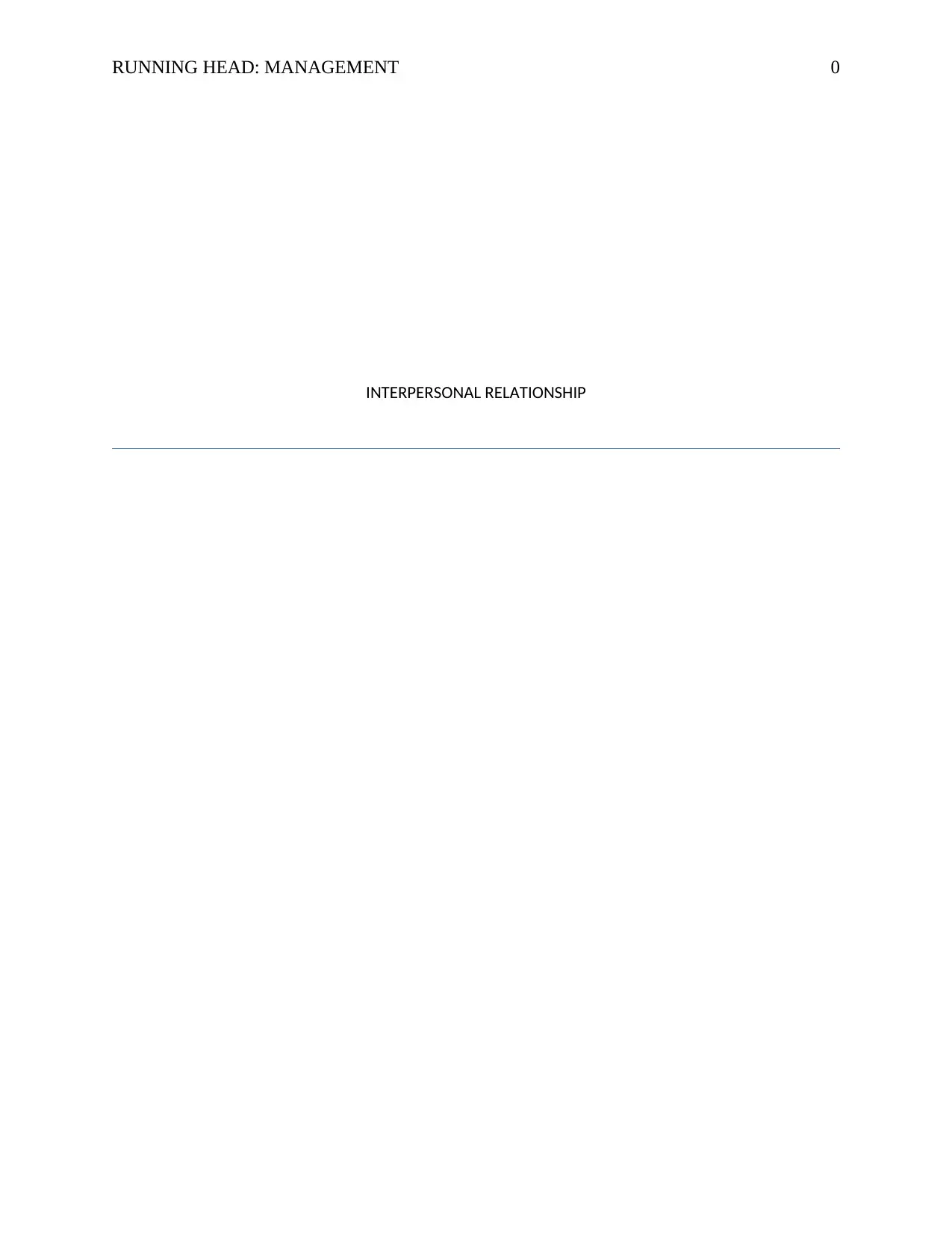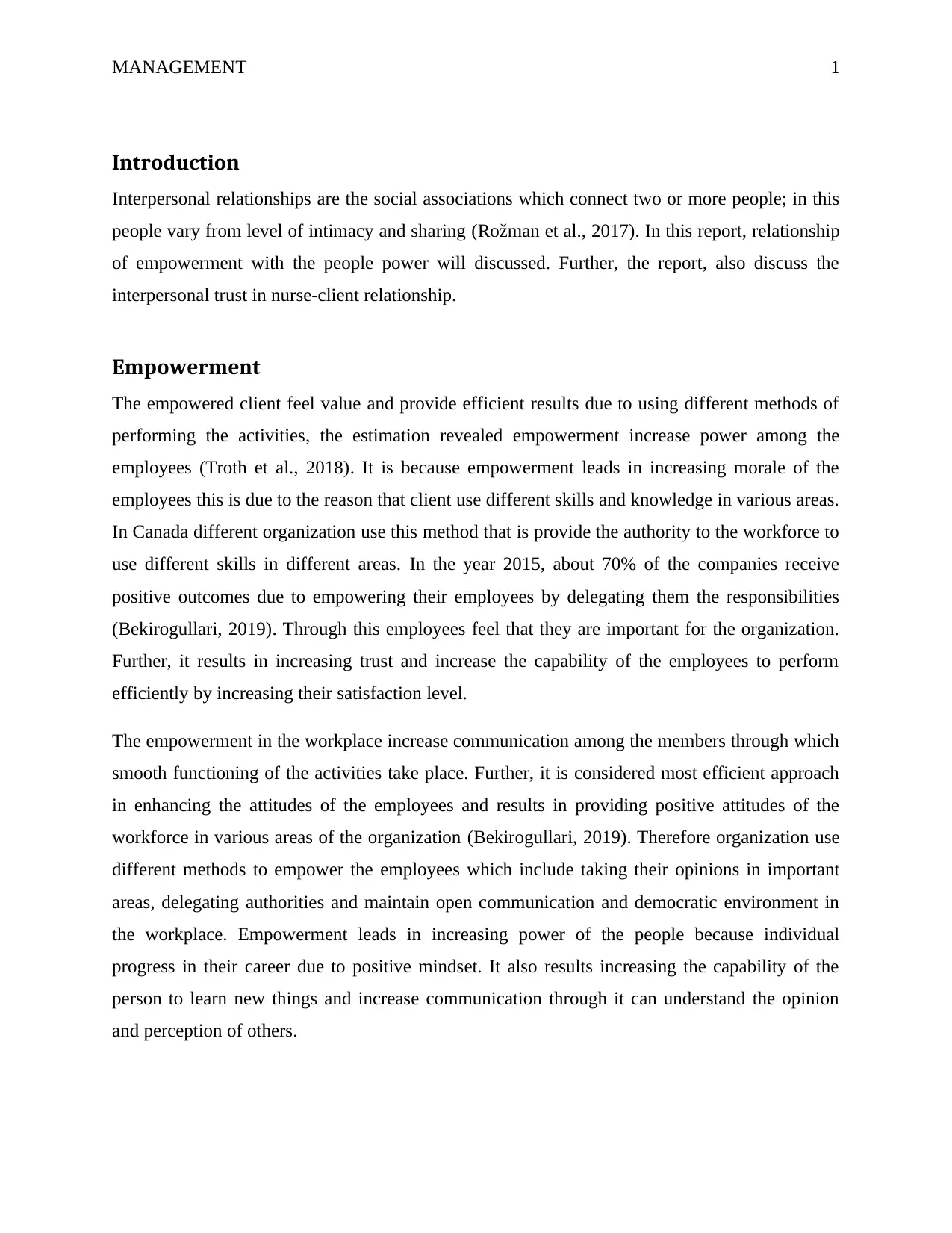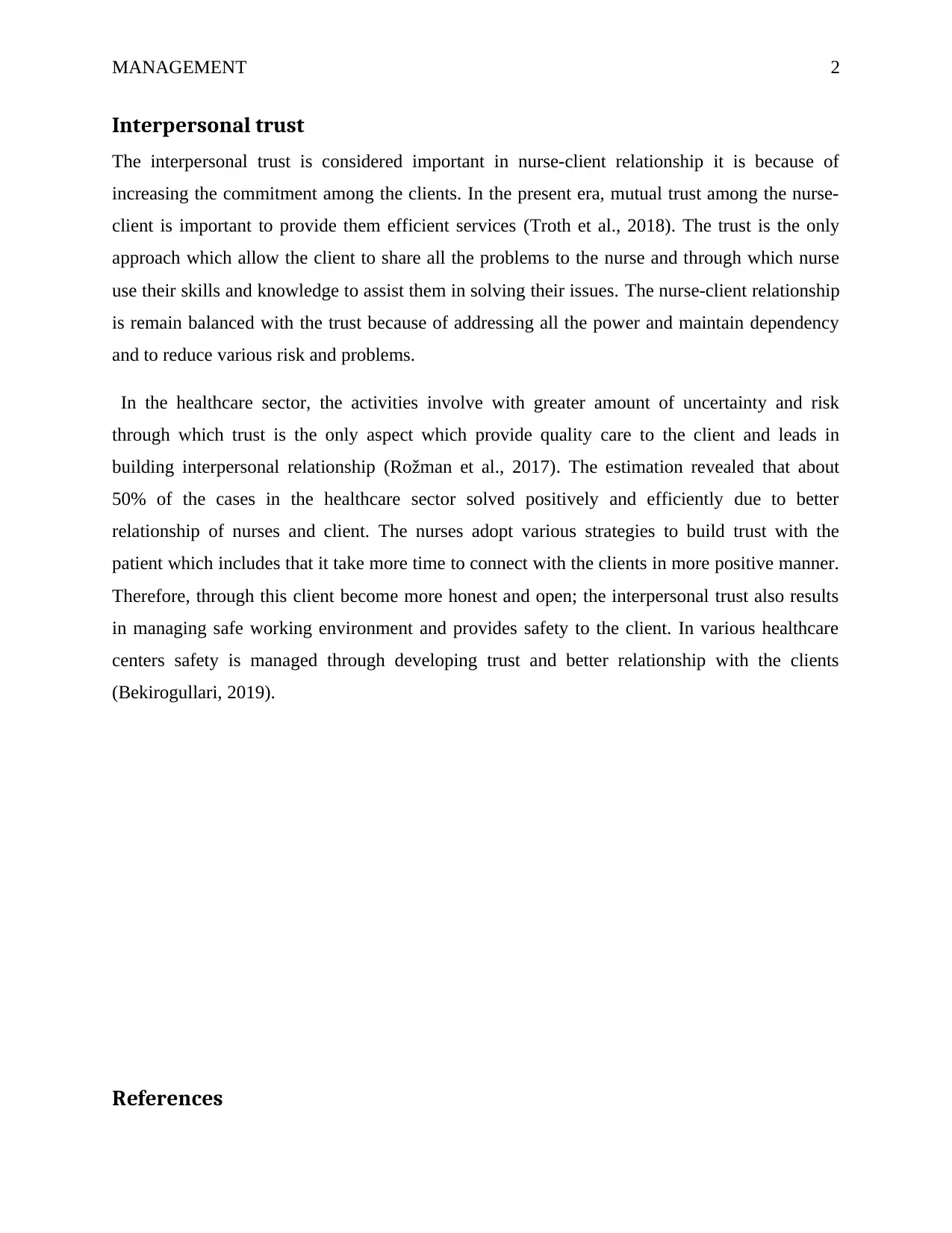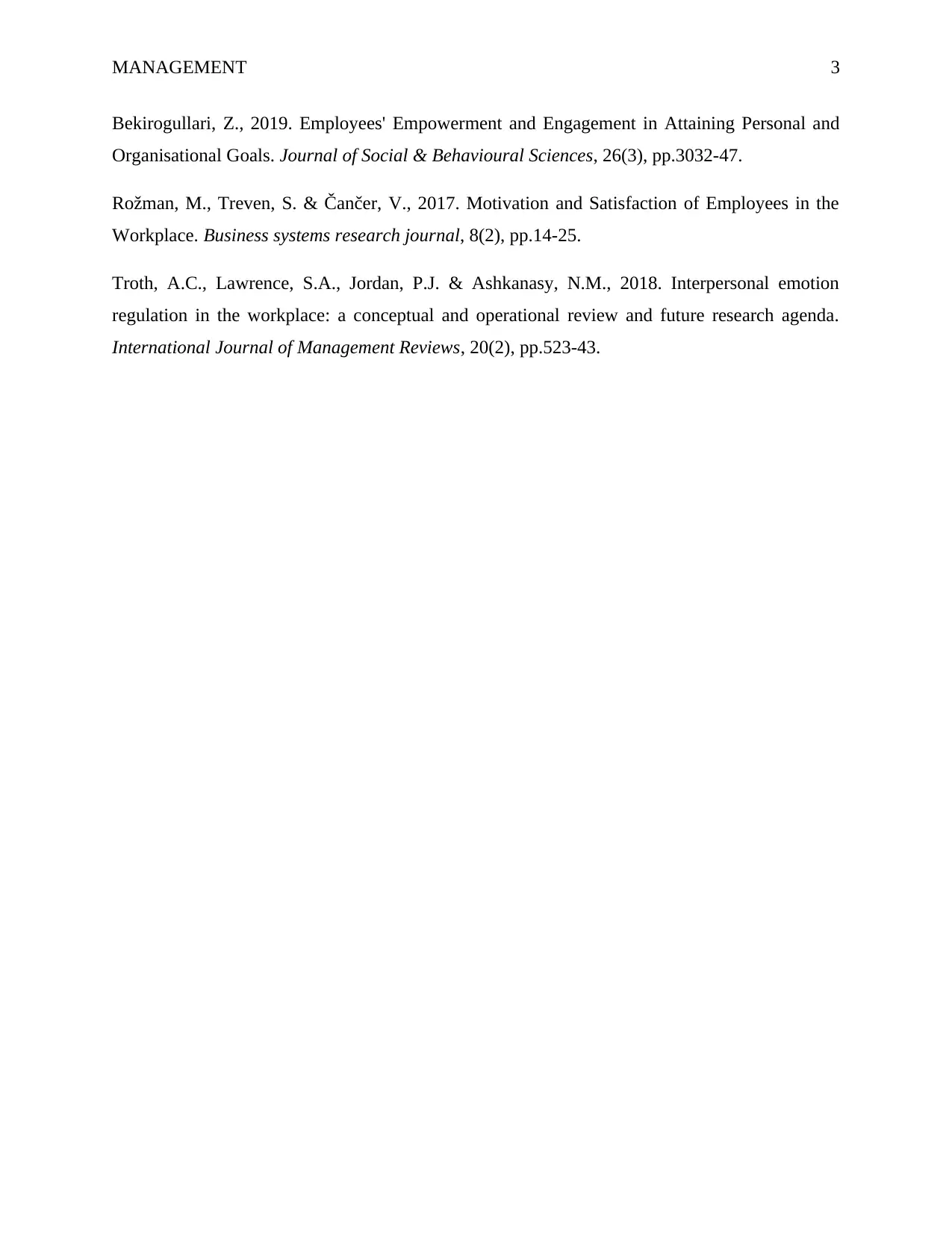Management Report: Analyzing Empowerment and Interpersonal Trust
VerifiedAdded on 2022/08/26
|4
|728
|34
Report
AI Summary
This report delves into the significance of interpersonal relationships, focusing on empowerment and trust within a management context. It examines how empowerment, particularly in organizations like those in Canada, enhances employee morale, increases trust, and improves performance. The report highlights the benefits of empowering employees by delegating responsibilities and fostering open communication. Furthermore, it explores the crucial role of interpersonal trust, especially in nurse-client relationships, emphasizing its importance in providing efficient healthcare services and building strong, positive connections. The report also references various studies and statistics that support the positive outcomes of these management strategies, underscoring their impact on both employee satisfaction and client care.
1 out of 4











![[object Object]](/_next/static/media/star-bottom.7253800d.svg)